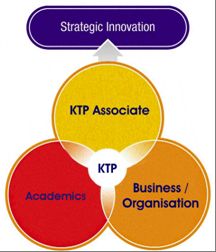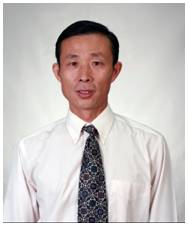 The UK Research Integrity Office (UKRIO) has welcomed calls for it to be placed at the centre of a toughened research integrity oversight regime in the UK. Agreed at a high-level meeting organised by the British Medical Journal (BMJ) and the Committee on Publication Ethics and attended by a variety of senior figures from journals, funders and institutions, the Consensus Statement calls upon institutions and research funders to do more to prevent and detect misconduct.
The UK Research Integrity Office (UKRIO) has welcomed calls for it to be placed at the centre of a toughened research integrity oversight regime in the UK. Agreed at a high-level meeting organised by the British Medical Journal (BMJ) and the Committee on Publication Ethics and attended by a variety of senior figures from journals, funders and institutions, the Consensus Statement calls upon institutions and research funders to do more to prevent and detect misconduct.
According to a recent BMJ survey, research misconduct is “alive and well” in the UK; 13 percent of UK-based scientists and doctors claimed they had witnessed colleagues fabricating or altering research data ahead of publication in peer-reviewed journals and of the 2,700 scientists and doctors who responded, 6 percent admitted misconduct themselves when preparing or presenting research papers. Research misconduct is important as it wastes resources, damages the credibility of science, and can cause harm (for example, to patients and the public).
As part of my role as the Conduct Officer in the RDU, I’m currently undertaking a University-wide ethics review, which will (among other things) actively promote a high level of research integrity in all BU endeavours. Within this review, I will ensure that the University is compliant with the guidelines agreed in the Consensus Statement and that we are doing our part to educate and inform staff and students on the importance of good research conduct.
Below is an abbreviated list of points agreed at the meeting:
- The UK’s mechanisms for ensuring good research conduct and investigating research misconduct need to be strengthened.

- Research misconduct is defined as behaviour by a researcher, intentional or not, that falls short of good ethical and scientific standards (Edinburgh 1999). Research misconduct includes fabrication, falsification, suppression, or inappropriate manipulation of data; inappropriate image manipulation; plagiarism; misleading reporting; redundant publication; authorship malpractice such as guest or ghost authorship; failure to disclose funding sources or competing interests; misreporting of funder involvement; and unethical research (for example, failure to obtain adequate patient consent).
- Primary responsibility for good research conduct rests with individual researchers. However, institutions have direct responsibility as employers to ensure good research conduct, and funders have a duty to hold institutions to account.
- Research funders should require research institutions to appoint a senior named person as a research integrity officer and to adhere to an agreed code of conduct for research.
- The code of conduct should mandate the setting up of effective systems to prevent and detect misconduct and proper investigation of allegations of research misconduct.
UKRIO is an independent body which provides expert advice and guidance about the conduct of research. They cover all subject areas and help all involved in research, from research organisations, including universities and the NHS, to individual researchers and members of the public.
























 SPROUT: From Sustainable Research to Sustainable Research Lives
SPROUT: From Sustainable Research to Sustainable Research Lives BRIAN upgrade and new look
BRIAN upgrade and new look Seeing the fruits of your labour in Bangladesh
Seeing the fruits of your labour in Bangladesh Exploring Embodied Research: Body Map Storytelling Workshop & Research Seminar
Exploring Embodied Research: Body Map Storytelling Workshop & Research Seminar Marking a Milestone: The Swash Channel Wreck Book Launch
Marking a Milestone: The Swash Channel Wreck Book Launch ECR Funding Open Call: Research Culture & Community Grant – Application Deadline Friday 12 December
ECR Funding Open Call: Research Culture & Community Grant – Application Deadline Friday 12 December MSCA Postdoctoral Fellowships 2025 Call
MSCA Postdoctoral Fellowships 2025 Call ERC Advanced Grant 2025 Webinar
ERC Advanced Grant 2025 Webinar Update on UKRO services
Update on UKRO services European research project exploring use of ‘virtual twins’ to better manage metabolic associated fatty liver disease
European research project exploring use of ‘virtual twins’ to better manage metabolic associated fatty liver disease